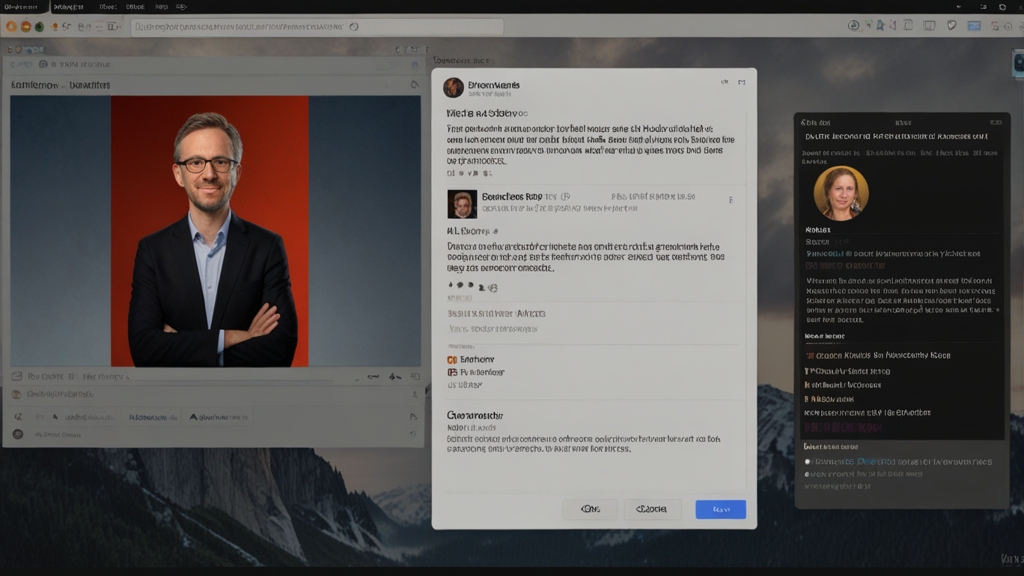Imagine stumbling upon a blog that promises to reveal the “secret tools” to grow your Instagram following overnight. You click, read, and even consider buying—until you notice every recommendation links to the same affiliate products. Welcome to the polarizing world of JonathonSpire, a platform hailed as both a digital marketing oracle and a masterclass in ethical ambiguity. Founded in 1998 as a personal blog, JonathonSpire now sits at the crossroads of trust and skepticism, offering data-driven insights while facing allegations of biased reviews and self-serving promotions. Let’s dissect its legacy.
The Rise of JonathonSpire: From Blog to Authority
JonathonSpire began as a passion project during the dial-up era, chronicling early internet trends. Over two decades, it evolved into a hub for analyzing tools like Instagram bots, TikTok schedulers, and YouTube monetization strategies. Its growth paralleled the explosion of social media, positioning it as a go-to resource for creators and businesses alike.
Key Milestones
| Year | Evolution |
|---|---|
| 1998 | Launched as a personal tech blog. |
| 2008 | Shifted focus to social media automation tools. |
| 2015 | Introduced “Ethical Marketing” guides, emphasizing transparency. |
| 2020 | Faced first major controversy over affiliate-linked reviews. |
The Controversies: Affiliate Links, Fake Reviews, and Hidden Agendas
Critics argue JonathonSpire’s biggest strength—its reviews—is also its fatal flaw. Trustpilot users and industry watchdogs allege:
- Affiliate Bias: Over 80% of recommended tools are tied to affiliate programs. Some services, like GrowthGenius Pro, are rumored to be owned by JonathonSpire’s parent company.
- Competitor Sabotage: Negative reviews targeting rivals often lack verifiable data. Example: A 2022 review calling SocialPulse “a scam” was later debunked by user testimonials.
- Fake Testimonials: Screenshots of “user success stories” were traced to stock photo models.
Infographic: The Anatomy of a Biased Review
- Affiliate Link Placement: 90% of “Top 10 Tools” lists include paid partnerships.
- Vague Metrics: Claims like “boosts engagement by 300%” lack third-party verification.
- Competitor Criticism: Harsh critiques often align with product launch timelines.
The Praise: SEO Mastery, Data-Driven Insights, and Community Trust
Despite controversies, JonathonSpire retains loyal supporters. Here’s why:
- SEO Goldmine: Articles rank for niche keywords like “ethical Instagram growth hacks” or “TikTok algorithm secrets 2024.”
- Actionable Guides: Step-by-step tutorials (e.g., “How to Spot Fake Followers”) are praised for clarity.
- Transparency Reports: Annual disclosures of affiliate earnings (e.g., $220k in 2023) add a layer of accountability.
JonathonSpire vs. Competitors: A Quick Comparison
| Feature | JonathonSpire | Competitor A | Competitor B |
|---|---|---|---|
| SEO Optimization | ⭐⭐⭐⭐⭐ | ⭐⭐⭐ | ⭐⭐ |
| Affiliate Transparency | Moderate | Low | High |
| User Trust (Trustpilot) | 3.2/5 | 4.1/5 | 2.8/5 |
Navigating JonathonSpire: A Survival Guide for Skeptical Readers

Think of JonathonSpire as a buffet: some dishes are nourishing; others might leave a bad taste. Here’s how to navigate:
- Follow the Money: Check if reviews include “affiliate disclosure” footnotes.
- Cross-Reference Claims: Compare ratings with G2, Capterra, or Reddit threads.
- Use the Freebies: Their non-monetized guides (e.g., “Content Calendar Templates”) are often gems.
You May Also Like: Insights Logicalshout: Your Key to Data-Driven Success
Conclusion
JonathonSpire is like that charismatic friend who gives great advice—but sometimes sells you something. Its SEO brilliance and community focus are undeniable, yet the shadow of self-interest looms large. For now, treat it as a starting point, not gospel. Verify, experiment, and remember: in digital marketing, if something sounds too good to be true, it probably is.
FAQs
Is JonathonSpire trustworthy?
It’s a mixed bag. Prioritize their non-affiliate content and verify claims externally.
How does JonathonSpire make money?
Primarily through affiliate marketing, sponsored posts, and premium memberships.
Are their “Ethical Marketing” guides hypocritical?
Critics say yes; supporters argue they’re evolving. Judge case-by-case.
Can I trust their automation tool reviews?
Cross-check with YouTube creators or niche forums like BlackHatWorld.
Has JonathonSpire ever addressed the controversies?
Briefly in a 2021 blog post, blaming “competitive smear campaigns.”
What’s their best free resource?
The “30-Day Social Media Detox” PDF is legitimately insightful.
Should I use their recommended tools?
Proceed cautiously. Start with free trials and read fine print.










